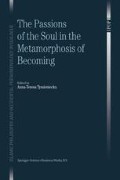Abstract
The history of Islamic Medicine unfolds in four stages. Each represents a special kind, particularly regarding the method followed. The aim of this paper is to characterize each stage, to describe the positive and negative elements in each kind of medicine, and to pave the way for a new one which can combine the positive elements of all previous kinds without the negative ones.
Access this chapter
Tax calculation will be finalised at checkout
Purchases are for personal use only
Preview
Unable to display preview. Download preview PDF.
Notes
The three collections of Bukari, Ibn Daoud and Ibn Maja contain a separate chapter on medicine, while collection of Muslim does not. Muslim refers to the sayings containing the prophetic medicine in the book of peace Kitab Al-Salam.
Ibn Al-Qayyim Al-Gauziya, The Prophetic Medicine, Cairo: Al Tib Al-Nabawi `Isa Al-Halabi, A.
H. Hanafi, Les Méthodes d’Exégèse, essai sur la science des fondements de la compréhension, Cairo: Ilm Usul AI-Fiqh, 1965.
A famous saying supports magic treatment by a comb and hair buried in a well, which make man inactive. The prophet took these two things and burned them and the man was cured. See Ibn Maja, II Hadith no 3544, ch. magic, p. 1173; Bukhari, VII, pp. 176–77 Muslim, 11, 2, pp. 14–5; Or the prohibition of eating dates having opthamia, Ibn Maja II, Hadith no 3443 p. 1139; or (Habbat Al-Baraka) (The Black Grain), containing all medicines and curing all sicknesses, Ibn Maja II, Hadith no 3447–9 p. 1141. See also invocation as cure from poison, Ibn Maja II Hadith no. 3517–9 pp. 1162 – 3.
Many hadiths refer to honey preference, Ibn Maja II, Hadith no 3450–2, p. 142, Bukhari, VII p. 159 Muslim II. 2, p.21, p.25. Moist dates cure poisoning. Ibn Maja II, Hadith no 3455 p. 1143; Bukhari, VII p. 181, Muslim II. 2, p. 21; Abou Daoud, II p. 335 cuping Hijama is ordered by the prophet as treatment while cautery is prohibited, Ibn Maja II Hadith no. 3476–94 pp. 1151–6; Bukhari VII, pp. 159, 174, Muslim II, 2, p. 21 Abou Daoud, II, pp. 322–23.
H. Hanafi, Human Subservience to Nature: An Islamic Model, Sweden: Swedish Council for Planning and Coordination of Research, 1982.
For example, Al-Razi critique of Hippocrates and Galen.
M. K. Husein, A Short History of Arab Medicine and Pharmacology (Al-Mugiz fi Tarikh Al-Tibb Walsaydalah Ind Al-Arab) p. 38, Cairo: Arab League.
Ibid., pp. 39-43.
Ibid., p. 26.
Hassan Hanafi, Islamic Fundamentalism: Its Historical Roots, Ideological and Political Explosions, Religion and Revolution in Egypt 1952-89, Vol. 6, Fundamentalism, Cairo: Madbouli. 1989 (in Arabic).
Al-Mandi Ben Ibrahim Al-Subeiri, Mukhtasar Kitab Al-Rahma fi Al-Tibb wa Al-hikma, 74–83, Cairo (N.D.).
TathkaratAl-Siwidi in medicine is an example of a larger experimental medicine with a smaller scriptural medicine, while Tashil Al-Manafi of Al-Azrak is the opposite example of a larger prophetic medicine with a smaller experimental medicine.
For example, a Talsam which cures from the plague is described as follows: In the beginning, “In the name of God” (Basmalah) is written, followed by Qur’anic verse, “Can he who was dead, to whom we gave life and a light whereby he can walk amongst men, be like him who is in the depths of darkness, from which he can never come out? Thus to those without faith, their own deeds seem pleasing” (6:122); Living, standing, judging, just, Saint; and the Qur’anic verse, “If there were a Qur ‘an with which mountains were moved, or the earth were cloven asunder, or the dead were made to speak, but truely, the command is with God in all things” (13:31), plus AAA M AAA H O or other letters GH KH D DH. R Z S SH S D or the follow square 0, Observer 0. Capable under the door. or other Qur’anic verses or 0, Creator O, Knowledgeable the word believer four times or living eight times…. Tathkarat Al Qaliubi, p. 50, p. 81 Cairo (N.D). Tathkarat Daoud, III pp. 176–82 Cairo, 1282 H;; Ibid., pp.140–48.
Hanafi, Hermeneutics as Axiomatics: An Islamic Model and “Religion and Revolution: An Islamic Model,” in Religious Dialogue and Revolution pp. 1–20; pp. 200–12, Cairo, 1977; See also “Les Methodes d’Exégèse, essai sur la science des fundaments de la compréhension,” Ilm Usul-fiqh, pp. 418–28, Cairo, 1965.
H. Bergson, Les Deux Sources de la Morale et de la Religion, p. 338, Paris: PUF, 1954.
Larche, “Le Sang Peut-il Vaincre la Mort?, Paris: Gallimard, 1957.
Editor information
Editors and Affiliations
Rights and permissions
Copyright information
© 2003 Springer Science+Business Media Dordrecht
About this chapter
Cite this chapter
Hanafi, H. (2003). Soul, Body, and the Spirit. In: Tymieniecka, AT. (eds) The Passions of the Soul in the Metamorphosis of Becoming. Islamic Philosophy and Occidental Phenomenology in Dialogue, vol 1. Springer, Dordrecht. https://doi.org/10.1007/978-94-017-0229-4_13
Download citation
DOI: https://doi.org/10.1007/978-94-017-0229-4_13
Publisher Name: Springer, Dordrecht
Print ISBN: 978-90-481-6359-5
Online ISBN: 978-94-017-0229-4
eBook Packages: Springer Book Archive

